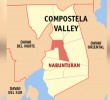Filipinos may be the most judgemental people in the world.
When a man has long hair, he is either gay or a dissident. A homely looking Filipina dating a Caucasian is probably one of those internet ‘success stories’ (or as my brother calls them, ‘jackpot girls’). The Tagalog for Caucasian is ‘amerikano,’ just as the Cebuano for Indian is ‘Jaiho.’
As a people it is almost cultural for us to conclude immediately based on the little that we see, and form judgements based on our ridiculously primitive set of principles. Just as quickly as we are dazzled by appearances, we are prone to quick condemnations.
I am hardly the first to remark on our gullibility when it comes to facades. The revolutionary Emilio Jacinto’s short essay ‘Ningning at Liwanag,’ metaphorizes the Filipino folly with the images of light and bedazzlement.
‘A dazzling carriage passes by, drawn by a swift steed,’ he writes. ‘We pay our respects and immediately assume the person riding it is a great man. We do not consider that he may be a thief, that behind the greatness he exhibits is hidden a vile man. A poor man likewise passes by. We smirk in response, thinking, “where might he have stolen that?”’
Prophetically, Jacinto cautions: ‘we are prone to worshiping bedazzlement. Let us not be surprised that those who would seek to live by the blood in our veins would come in guile to impress us. The broken shards of glass when hit by the rays of the burning sun will glimmer and shine, but those who seek to touch it are cut.’
Our culture of worshiping fine appearances runs deep, and continues to this day, manifesting in all aspects of daily life. In our education system a student may be very intelligent, but if he has bad handwriting he is considered stupid (and if he does not follow the prescribed haircut he cannot even take the exam). In our politics we continue to vote for candidates who are ‘trustworthy’ and ‘with a heart for the poor,’ standards we of course judge by mere appearances. The whole narrative of the ‘disenteng tao’ that the Liberals promoted to put down the foulmouthed Duterte is rooted in the importance of appearances in our culture.
And so comes with this shallowness, almost mirror-like, our tendency to quickly condemn and dismiss. Nobody paid heed to Jacinto’s eloquent warnings: the no-nonsense, Duterte-mouthed Antonio Luna was assassinated simply because he offended too many people’s feelings. That prejudice effectively cost the Filipino people their independence from the Americans.
You would think that we would learn. But over a century later we are still just as narrow-minded and just as prejudiced. Manilenyos reacted to the recent string of board exam topnotchers from the Visayas and Mindanao with speculation that these board exams may have been rigged by the government, currently dominated by officials from Davao. These uncivilized barbarians from the south could not possibly outdo civilized Manila, they can’t even talk Filipino properly, they must have cheated.
This column’s title will probably elicit this exact same narrow-mindedness and prejudice.
Left-handedness has always been considered an evil trait – the very English word ‘sinister’ has origins in the Latin for ‘left’ (just as the word ‘dexterous’ traces its origin to the Latin ‘dexter,’ ‘right’). Filipinos of the previous generation will remember being scolded by their parents or teachers for using the left hand to write or do anything. The Tagalog for adultery, for some reason, even refers to the left hand, ‘pangangaliwa.’
Likewise, there are few animals as vilified as the snake. The biblical serpent’s temptation of Eve is routinely attributed as the cause of Mankind’s demise (people will never blame themselves, of course). Snakes are automatically considered deadly, even though only a fraction of all snakes cause harm by venom or strangulation. The very word for snake in Tagalog is synonymous with traitor.
What else then could be worse than a snake but a left-handed snake!
And the column title, of course, also highlights how arbitrary much of our standards are. Snakes cannot be left-handed when they do not even have hands. And yet these two negative images together seem twice as negative in spite of the oxymoron.
As absurd too as our sinister (of course) association with left-handed snakes is our worship of the intelligence of the fluent English speaker (or conversely our ridicule of the hard-tongued Bisaya), our insistance that our male students should have their hairs above their ears or that our female students ought to be virgins.
The tri-peoples of Mindanao should know prejudice well. For over a century, Lumad, Moro, and Settlers have lived together in this shared space with suspicion, resentment, and a lot of stereotypes – the landgrabbing settler, the violent Moro, the primitive Lumad. It is time once and for all to dissect, discredit, and denounce such prejudices and mock them for the absurdities that they are.
I write for this column intending to look at things and present them from the other side, breaking down perceived truths and ridiculing them for the sanctity with which they have been enshrouded. I have been writing for almost two decades now, and much of that writing has been contrarian and polemic in nature.
On a more literal level this column will also serve to provide news and views from the other side. While still meaning to write about matters concerning Davao, I intend to use the space Davao Today has provided to feature matters about my hometown of Kidapawan, the city on the other side of Mount Apo. I am currently writing a history of the city, so expect a lot of historical tidbits and views. Little attention is paid to Kidapawan, which, in response to the violent protest there of farmers from other parts of the province, the National and international news outlets have called ‘impoverished.’ Oh how people can be so erroneously judgemental.
I am Karlo Antonio Galay David, and I look forward to changing such perceptions. (davaotoday.com)
————————–
Karlo Antonio G. David is a writer based in Davao. His interests include the Mindanao settler identity, the hybridization of the Filipino languages (with specific focus on Davao Filipino), and the development of local historiography and introspection, particularly of his hometowns of Kidapawan and Davao. His one-act play, Killing the Issue, won the second prize in the 2014 Palanca Awards.










